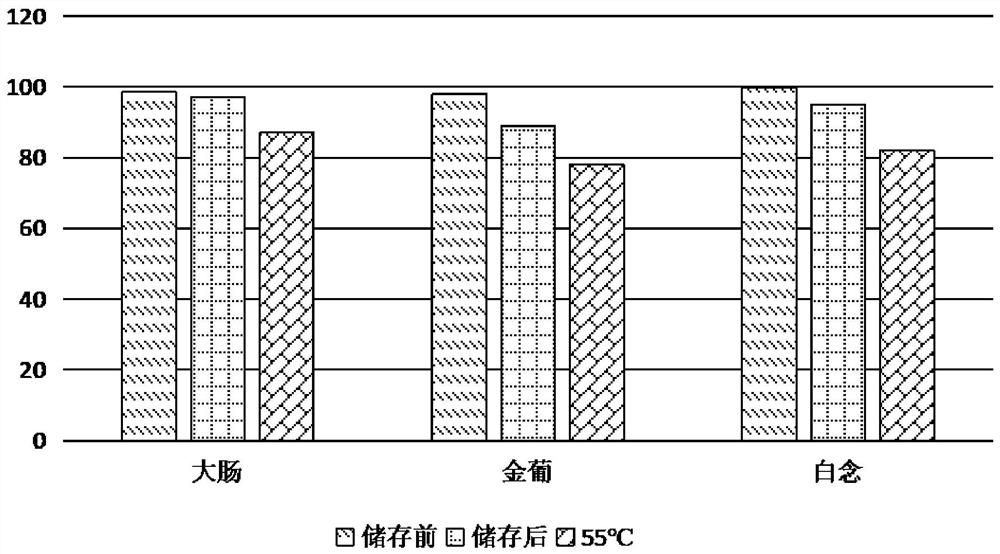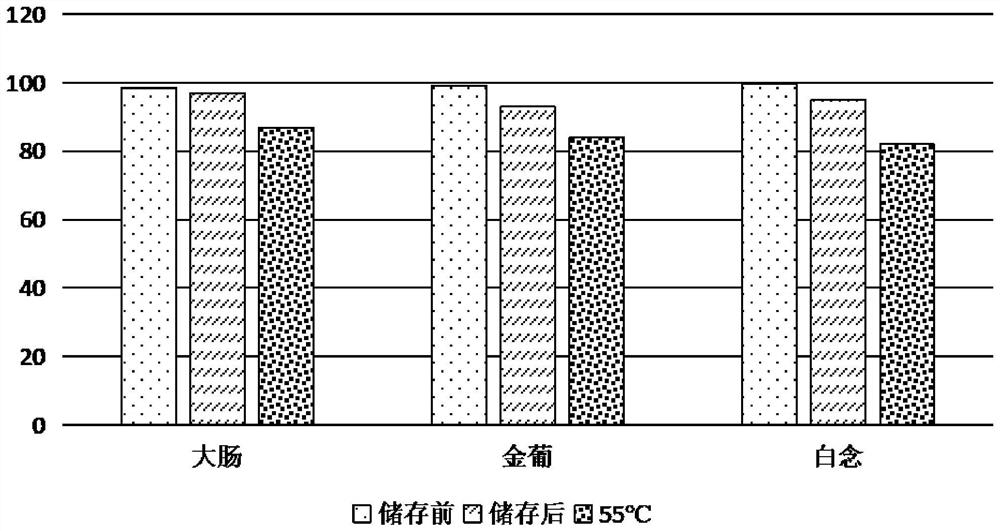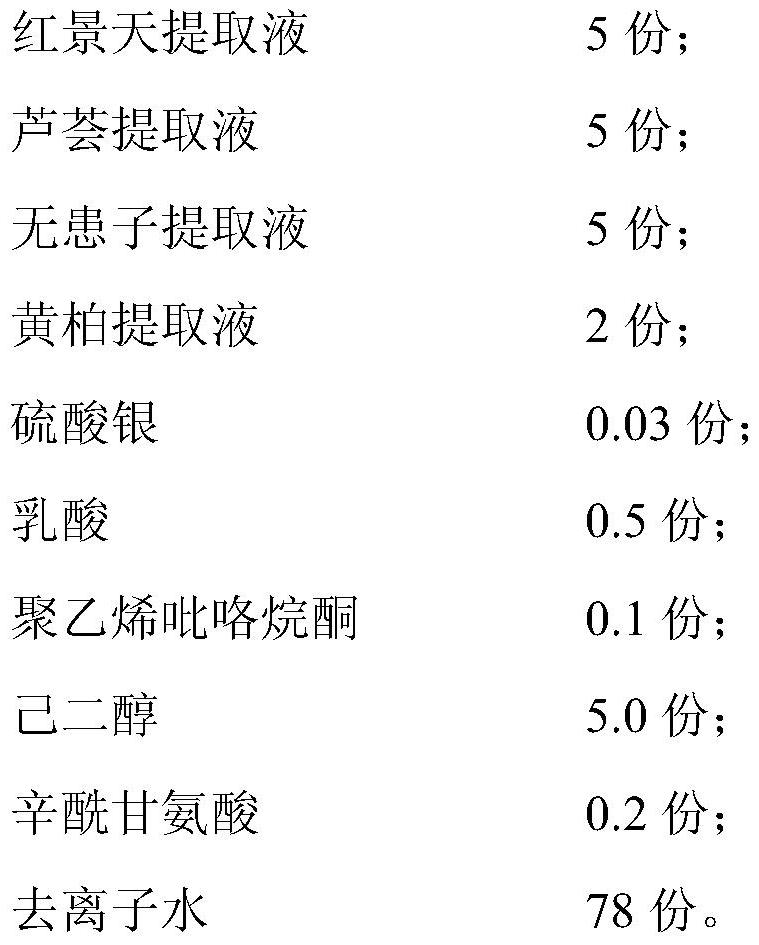Plant bacteriostatic agent and preparation method thereof and daily chemical product containing the plant bacteriostatic agent
A plant antibacterial and bacteriostatic agent technology, which is applied in the field of plant antibacterial agents and their preparation, can solve the problems of limited antibacterial effect, achieve the effects of enhancing antibacterial effect, improving stability, and preventing flocculation and precipitation
- Summary
- Abstract
- Description
- Claims
- Application Information
AI Technical Summary
Problems solved by technology
Method used
Image
Examples
Embodiment 1
[0050] The plant bacteriostatic agent of the present embodiment is obtained by reacting the following raw materials in parts by weight:
[0051]
[0052] When preparing the plant bacteriostatic agent, each raw material is added according to the above-mentioned amount, including the following steps:
[0053] (1) Crush Rhodiola rosea, aloe vera, Sapindus japonica, and Cortex Phellodendri and pass through a 40-mesh sieve, then add them to deionized water at a ratio of 1:20 to the liquid, stir evenly, heat and stir at 95°C for 4.0 hours, cool and filter , after evaporation and concentration, the volume after concentration is 1 / 2 of the original volume, and four kinds of plant extract solutions are obtained;
[0054] (2) adding octanoyl glycine to the hexylene glycol solution, the mass ratio of octanoyl glycine and hexylene glycol is 0.2:5, and heating and stirring at 65 ° C to dissolve the alcohol solution of octanoyl glycine;
[0055] (3) the Rhodiola rosea extract, the aloe ...
Embodiment 2
[0057] The plant bacteriostatic agent of the present embodiment is obtained by reacting the following raw materials in parts by weight:
[0058]
[0059]
[0060] When preparing the plant bacteriostatic agent, each raw material is added according to the above-mentioned amount, including the following steps:
[0061] (1) Crush Rhodiola rosea, aloe vera, Sapindus japonica, and Cortex Phellodendri and pass through a 40-mesh sieve, then add them to deionized water at a ratio of 1:20 to the liquid, stir evenly, heat and stir at 95°C for 4.0 hours, cool and filter , after evaporation and concentration, the volume after concentration is 1 / 2 of the original volume, and four kinds of plant extract solutions are obtained;
[0062] (2) adding octanoyl glycine to the hexylene glycol solution, the mass ratio of octanoyl glycine and hexylene glycol is 0.2:5, and heating and stirring at 65 ° C to dissolve the alcohol solution of octanoyl glycine;
[0063] (3) the Rhodiola rosea extrac...
Embodiment 3
[0065] The plant bacteriostatic agent of the present embodiment is obtained by reacting the following raw materials in parts by weight:
[0066]
[0067] When preparing the plant bacteriostatic agent, each raw material is added according to the above-mentioned amount, including the following steps:
[0068] (1) After crushing Rhodiola rosea, aloe vera, Sapindus japonica, and Cortex Phellodendri, respectively, pass through a 40-mesh sieve, then add to deionized water at a ratio of 1:20 to the liquid, stir evenly, heat and stir at 90°C for 4.0 hours, and cool and filter , after evaporation and concentration, the volume after concentration is 1 / 2 of the original volume, and four kinds of plant extract solutions are obtained;
[0069] (2) adding octanoyl glycine to the hexylene glycol solution, the mass ratio of octanoyl glycine and hexylene glycol is 0.2:10, and heating and stirring at 70 ° C to dissolve the alcohol solution of octanoyl glycine;
[0070] (3) the Rhodiola rose...
PUM
 Login to View More
Login to View More Abstract
Description
Claims
Application Information
 Login to View More
Login to View More - R&D Engineer
- R&D Manager
- IP Professional
- Industry Leading Data Capabilities
- Powerful AI technology
- Patent DNA Extraction
Browse by: Latest US Patents, China's latest patents, Technical Efficacy Thesaurus, Application Domain, Technology Topic, Popular Technical Reports.
© 2024 PatSnap. All rights reserved.Legal|Privacy policy|Modern Slavery Act Transparency Statement|Sitemap|About US| Contact US: help@patsnap.com










